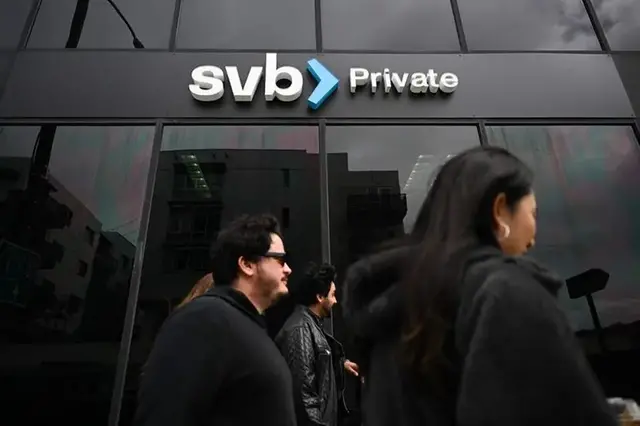The Silicon Valley Bank (SVB) crash is the biggest bank failure in the US since 2008. As many startups and venture funds kept their money there, this collapse can slow down investment activity worldwide. However, it can become a massive opportunity for the MENA region.
What happened
Silicon Valley Bank (SVB), founded in 1983, became a prominent player in the tech startup ecosystem, serving as the bank of choice for companies in Silicon Valley and beyond. However, the bank’s business model was distinct from traditional banking, with a focus on investments in long-term US treasury obligations and mortgage bonds rather than relying on loans.
In 2022, the US experienced record inflation, prompting the Federal Reserve to tighten monetary policy and raise rates, negatively impacting SVB’s business. With a cooling off of the venture market, SVB’s deposit portfolio stopped growing, and the cost of funding increased. Meanwhile, its assets in government bonds were depreciating due to the higher Fed rate, leading to a decline in its balance sheet.
In an effort to save itself, SVB announced the sale of $21 billion worth of government securities and planned to transfer the proceeds to short-term treasury bonds to increase asset yields. However, this led to a full flight of depositors and a collapse of the bank’s stock on the stock market. On March 9, 2023, SVB Financial Group shares fell by 60%. The largest venture investment funds, including Peter Thiel’s Founders Fund and Union Square Ventures, advised their portfolio companies to withdraw their money from the bank. This ultimately led to the bank’s demise after nearly 40 years of operation.
Investment slowdown and cash gaps
There was some effect on the MENa market. The next day after the collapse, which happened on the 10th of March, most stock markets in the Middle East ended lower on Sunday, with the Egyptian bourse leading the declines.. Saudi Arabia’s benchmark index dropped 0.8 percent, with a 1.7 percent fall in Al Rajhi Bank. The index slid 1.6 percent in Qatar, as almost all the stocks were in the negative territory, including Qatar Islamic Bank, which tumbled 3.9 percent.
Although that appeared to be a short-time effect, there are some concerns that the collapse of SVB, one of the leading banks in the tech industry, can have a broader impact on a startup system in the MENA region.
That can be an issue for the companies that had their accounts in SVB. They can experience a shortage of money, which can affect their business operations, lead to cash gaps and debt, and slow down their growth.
Some regional startups can face a challenge of another type. The bank’s collapse affected the ability of some investment funds and venture capitalists who held their money at SVB to fund new or pending transactions. Consequently, there may be delays in funding rounds for some startups, a reduction in the availability of capital, and even bankruptcies or layoffs in the tech sector.
New opportunities
Realiste, a MENA-based startup, is an example of how the Silicon Valley Bank (SVB) collapse could provide opportunities for the region’s tech startups. Realiste provides a platform for real estate investment management, offering investors the ability to buy, manage, and sell properties remotely.
As the collapse of SVB led to many international investors and startups withdrawing their funds from the bank, MENA-based startups like Realiste have an opportunity to attract these investors and provide alternative investment opportunities. With more investors turning their attention to the region, this could potentially increase the availability of capital for startups and drive the growth of the tech industry in the MENA region.
Realiste’s platform is uniquely positioned to capitalize on this potential influx of investment. With a focus on real estate, the startup offers an alternative investment opportunity to traditional tech startups, which could be appealing to investors looking for a diversified portfolio.
While the SVB collapse may have initially caused some short-term disruption and uncertainty in the MENA region, it could ultimately lead to increased investment and growth in the tech industry, benefiting startups like Realiste and the region’s economy as a whole.
New innovation hub
At the same time the collapse can serve as a trigger for a local banking system to work more closely with startups. In turn, startups can minimize their reliance on international banks.
The bank’s collapse can also attract foreign startups and investors who previously would have chosen to settle in the US.
Losing faith in that market, they can now have more reasons to choose the MENA region, where the economy is growing, and local and regional governments highly support startups.
Moreover, local investment funds, venture capitalists, business angels, and family offices now have the chance to invest in potential startups earlier than international players and capitalize on this opportunity.
All of these factors can transform the surface of the local business field, which has already been compared to Silicon Valley regarding support towards the startup ecosystem, the number of innovative companies, and more. The bank’s collapse allows the MENA region to take the lead in the tech industry and maintain its status as a new global innovation hub.

